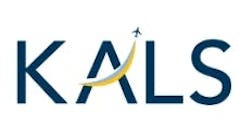Boeing could soon be a corporate felon, but that’s little comfort to the families of the 346 people who died when two 737 MAX planes crashed five years ago.
The company said Sunday it would plead guilty to a criminal fraud charge for misleading safety regulators before the two MAX crashes in 2018 and 2019. But many of those victims’ families say the company is still skating away without full accountability or sufficient oversight to prevent additional accidents, like the January midair blowout aboard an Alaska Airlines 737 MAX that left a gaping hole in the side of the plane thousands of feet in the air.
The plea deal that the Justice Department offered Boeing is too lenient to enact long-term change, several of the MAX crash victims’ families and their attorneys said Monday, after federal prosecutors notified a federal judge in Texas late Sunday night that Boeing had agreed to the deal.
Minutes after that court filing, attorneys representing the victims’ families filed their own notice, telling U.S. District Judge Reed O’Connor they intend to object to the deal and hope he will not allow it to move forward.
The plea deal “unfairly makes concessions to Boeing that other criminal defendants would never receive and fails to hold Boeing accountable for the deaths of 346 persons,” the attorneys wrote in the notice. “The generous plea agreement rests on deceptive and offensive premises.”
The plea agreement would require Boeing to pay a $243.6 million fine and commit $455 million over three years to safety and compliance improvements. By way of comparison, Boeing brought in $16 billion in revenue in the first quarter of this year, according to company financial statements.
Under the terms of the plea deal, the Justice Department would also appoint an independent compliance monitor to oversee Boeing’s progress on promised improvements during a three-year probation period.
That’s a change from an earlier agreement between Boeing and the Justice Department that allowed the company to avoid criminal charges if it met certain conditions for three years. The Justice Department determined in May that Boeing had failed to meet those requirements, leading to the plea deal it offered Boeing at the end of June.
The new agreement stipulates that the independent monitor must publish an annual report detailing the company’s progress, though only an executive summary would be available to the public. Sunday’s court filings did not detail any penalties or remedies if Boeing does not comply. The Justice Department is expected to file the complete agreement in court by July 17.
For those who have been pushing to hold Boeing accountable, the proposed plea deal doesn’t go far enough.
Erin Applebaum, an attorney with the Kreindler and Kreindler law firm who is representing some of the families, said the Justice Department’s proposal allowed Boeing to have too much input into who would be appointed as the independent monitor, leaving Applebaum worried that Boeing would, essentially, be monitoring itself.
“The fine is minimal. The monitor is not going to be independent enough. It’s egregious that the victims are not mentioned or taken into account,” she said. “This is a weak deal that is not going to do anything to effectuate change within Boeing.”
Though Boeing agreed late Sunday to plead guilty to the fraud charge, the plea agreement is not yet a done deal, said Mark Lindquist, a Tacoma-based attorney who is representing some victims’ families. If Judge O’Connor rejects the deal, Boeing and the Justice Department begin negotiating another agreement.
“Typically, a judge almost always accepts a complicated plea deal worked out by the Department of Justice and a major white-collar criminal defendant,” Lindquist said. “That said, nothing about this case so far has been typical.
“This could be one of those rare cases where the judge rejects the plea deal.”
Boeing confirmed it had reached an agreement with the Justice Department on Sunday. The company declined to comment further.
In the eyes of the victims’ families, the deal too closely matches an earlier agreement between Boeing and federal prosecutors that put the original fraud charge on hold for three years.
The initial deal required Boeing to meet a range of conditions to avoid a fraud conviction after the Justice Department accused Boeing of misleading federal safety regulators about a new software system on its 737 MAX plane. An error in that system led to the deadly crashes in 2018 in Indonesia and in 2019 in Ethiopia.
The two agreements do have one large difference — the appointment of an independent monitor to oversee Boeing’s compliance with the promised improvements. But Applebaum, the attorney with Kreindler and Kreindler, said the Justice Department hasn’t taken steps to ensure Boeing won’t influence the decision of who is in charge of its oversight.
Originally, the Justice Department planned to have Boeing offer three names for the independent monitor and federal prosecutors would then pick among the list, Applebaum said. In court filings Sunday, the Justice Department had changed that process: It would open a public posting on its website for people to submit proposals. It would select from that list, with feedback from Boeing, the court document said.
Federal prosecutors said that change was in response to concerns from victims’ families, but Applebaum said it would still allow Boeing too much control in selecting its monitor.
“It’s an illusory way to placate the families. The end result is Boeing still has oversight of who it’s going to be,” Applebaum said.
The Justice Department said in court filings it will likely take months to choose an independent monitor and set up the framework for them to get started.
The plea agreement also leaves it up to the court to decide if Boeing owes victims’ families additional restitution for the loss of their loved ones. Following the 2021 agreement with federal prosecutors, the company paid $500 million into a fund for the families of passengers who were killed.
The Justice Department, Boeing and the attorneys representing the victims’ families are meeting Tuesday to discuss a timeline for what happens next. Lindquist and Applebaum expect a hearing in July or August, where the victims’ families will object to the plea deal.
_____
©2024 The Seattle Times. Visit seattletimes.com. Distributed by Tribune Content Agency, LLC.




